#chinese feminism
Text

Crazy chinese feminists (positive). All feminists should advocate for this, this is what a feminist program looks like.
I can already see the men making nervous poops and inventing excuses as to why women should lose their rights, why such a program should be made illegal, because they're perfectly aware that most of them won't be able to pass on their genes if this becomes the dominant way for women to reproduce.
#radical feminism#radfem#radblr#radical feminist safe#radical feminists do interact#radical feminist#chinese feminism#feminism
4 notes
·
View notes
Text
There should be a Chinese national day or memorial commemorating women who lost their lives to unfair and inhumane treatment throughout history
A moment of silence and reflection to all the unimaginable suffering in ancient and imperial China:
- women who were abused mentally and physically, or even murdered by their fathers, as it was legal for them to do such things to their daughters
- the mandatory practice of the Three Obediences, forcing women to be obedient to their fathers in childhood, their husbands in marriage and their sons in widowhood
- women who committed suicide when their husbands died or as a act of preventing rape, as chastity was highly regarded by society and such actions were encouraged and even commemorated by gifts
- women who were buried alive with their dead husbands of high social status (and thus grander burials)
- women who were coerced to stay unmarried after their husband’s deaths and expected to remain filial to his parents for life, even if they treated her poorly. These girls would be seen as impure and hence unsuitable for remarriage, and if they did so would be looked down upon for the rest of her life. There were also periods in history when women lost their dowries and property left to her by her parents to the first husband’s family by law, so she is left with nothing to support herself if he dies and she wishes to leave
- women who were wildly talented but were not allowed to own property but expected to help her husband pay his taxes, receive an education, hold positions in court or do anything other than acts of pleasing or assisting the male population. The famous Ming Dynasty saying ‘a woman without talent is virtuous’ paints the picture
- women whose life’s worth was her ability to bear male heirs
- women who were not allowed outdoors for life because of social norms and died of mental illness. Let’s not forget some were also physically bound to the house via foot binding, which was seen as an erotic symbol by men, but was a practice in which young girls had to break the bones of her feet to have them reshaped and tightly wrapped to less than half its previous size
The fact that fragments of the above carry to the present day is both shocking and revolting!
#let’s take a moment!!#never forget#Chinese history#Chinese women#feminism#Chinese feminism#unfair treatment of women#equality of the sexes
17 notes
·
View notes
Text
[Hanfu · 漢服]The relationship between women in history is not just love rivals,
“but also thousands of years later, everyone knows that it is me and you.”
Let's get to know about them/她们 in China history.
1.【Han Dynasty】:Princess Jieyou (解忧公主) & Feng Liao (馮嫽)
Princess Jieyou (Chinese: 解忧公主; 121 BC – 49 BC), born Liu Jieyou (Chinese: 刘解忧), was a Chinese princess sent to marry the leader of the Wusun kingdom as part of the Western Han Chinese policy of heqin(和亲).
As the granddaughter of the disgraced Prince Liu Wu (劉戊) who had taken part in the disastrous Rebellion of the Seven States,her status was low enough that she was sent to replace Princess Liu Xijun (劉細君) after her untimely death and marry the Wusun king Cunzhou (岑陬).
Jieyou lived among the Wusun for fifty years and did much work to foster relations between the surrounding kingdoms and the Han. She was particularly reliant upon her attendant, Feng Liao, whom she dispatched as an emissary to Wusun kingdoms and even to the Han Court. She faced opposition from pro-Xiongnu members of the Wusun royalty, particularly Wengguimi’s Xiongnu wife. When word came that the Xiongnu planned to attack Wusun, she convinced her husband to send for aid from the Han Emperor. Emperor Wu of Han sent 150,000 cavalrymen to support the Wusun forces and drive back the Xiongnu.
In 51 BCE at the age of 70, Jieyou asked to be allowed to retire and return to the Han. Emperor Xuan of Han agreed and had her escorted back to Chang'an where she was welcomed with honor. She was given a grand palace with servants usually reserved for princesses of the imperial family. In 49 BCE, Jieyou died peacefully.
Feng Liao (馮嫽)
Feng Liao (馮嫽) was China's first official female diplomat,[citation needed] who represented the Han dynasty to Wusun (烏孫), which was in the Western Regions. It was a practice for the Imperial Court to foster alliances with the northern tribes via marriage, and two Han princesses had married Wusun kings.
Feng Liao was the maidservant of Princess Jieyou (解憂公主), who was married off to a Wusun king. Feng herself later married an influential Wusun general, whose good standing with Prince Wujiutu (烏就屠) of the kingdom later proved beneficial to the Han dynasty.
When Prince Wujiutu seized the throne of Wusun in 64 BC, after his father died, there was fear in the Imperial Court of Han that Wujiutu, whose mother was Xiongnu, would allow Wusun to become Xiongnu's vassal.
Zheng Ji, Governor of the Western Regions, recalled that Feng Liao had married into Wusun and with her familiarity of the Wusun customs, she was a prime candidate to persuade Wujiutu to ally his kingdom with Han. Wujiutu acceded and Emperor Xuan of Han (漢宣帝) sent for Feng. He praised her for her judgement and diplomacy, and appointed her as the official envoy to Wusun.
Wujiutu was conferred the title "Little King of Wusun" while his brother, the son by a Han princess, was named "Great King of Wusun". Wusun was divided between the two kings and tensions in that region were eased.
※Xiongnu: Xiongnu: A nomadic tribe that has occupied northern China for a long time. Later it gradually became a state. It harassed the borders of the Han Dynasty for a long time and robbed supplies.
------
With their efforts, the Wusun Kingdom gradually tended to support the Han Dynasty, and the Xiongnu's defeat in China also began.
------
2.【Tang Dynasty】:Shangguan Wan'er(上官婉儿)&Princess Taiping (太平公主)
Shangguan Wan'er/上官婉儿 (664 – 21 July 710) was a Chinese politician, poet, and imperial consort of the Wu Zhou and Tang dynasties. Described as a "female prime minister,"Shangguan rose from modest origins as a palace servant to become secretary and leading advisor to Empress Wu Zetian of Zhou. Under Empress Wu, Shangguan exercised responsibility for drafting imperial edicts and earned approbation for her writing style. She retained her influence as consort to Wu's son and successor, Emperor Zhongzong of Tang, holding the imperial consort rank of Zhaorong (昭容). Shangguan was also highly esteemed for her talent as a poet.Shangguan was also highly esteemed for her talent as a poet. In 710, after Emperor Zhongzong's death, Shangguan was killed during a palace coup that ended the regency of Empress Dowager Wei.
Princess Taiping (太平公主)lit. "Princess of Great Peace", personal name unknown, possibly Li Lingyue (李令月) (after 662 – 2 August 713) was a royal princess and prominent political figure of the Tang dynasty and her mother Wu Zetian's Zhou dynasty. She was the youngest daughter of Wu Zetian and Emperor Gaozong and was influential during the reigns of her mother and her elder brothers Emperor Zhongzong and Emperor Ruizong (both of whom reigned twice), particularly during Emperor Ruizong's second reign, when for three years until her death, she was the real power behind the throne.
She is the most famous and influential princess of the Tang dynasty and possibly in the whole history of China thanks to her power, ability and ambition. She was involved in political difficulties and developments during the reigns of her mother and brothers. Indeed, after the coup against Empress Dowager Wei, she became the real ruler of Tang. During the reign of Emperor Ruizong, she was not restricted by anything, the emperor issued rulings based on her views and the courtiers and the military flattered her and majority from every civil and military class joined her faction, so her power exceeded that of the emperor.
Eventually, however, a rivalry developed between her and her nephew, Emperor Ruizong's son, Crown Prince Li Longji. Both of them were hostile in power-sharing and they fought for the monopoly over power. After Emperor Ruizong yielded the throne to Li Longji (as Emperor Xuanzong) in 712, the conflict came to the political forefront, and openly, the court became a manifestation of conspiracy rather than the administration of the empire; in 713, Emperor Xuanzong, according to historical records, believing that she was planning to overthrow him, acted first, executing a large number of her powerful allies and forcing her to commit suicide.
------
The relationship between Shangguan Wan'er and Princess Taiping has always been written as "enemies" in official history, but with the phrase "千年万岁,椒花颂声", their friendship that has been buried for thousands of years was revealed.
The"千年万岁,椒花颂声" sentence comes from the epitaph written by Princess Taiping for Shangguan Wan'er. The original text is: "潇湘水断,宛委山倾,珠沉圆折,玉碎连城。甫瞻松槚,静听坟茔,千年万岁,椒花颂声”
Translation: Now that you are far away, the sky and the earth will lose their color. I'm afraid that all I can do in the future is to sit and look at the tea tree in front of your tomb. Maybe I can hear your voice again when I stand within an inch of the tomb. But this is a delusion after all, a quiet tomb, no beautiful face, a empty place of death. I hope that in a thousand or ten thousand years, there will still be people like me who remember you.
------
3.【Late Qing Dynasty】:Lü Bicheng(呂碧城) & Qiu Jin (秋瑾)
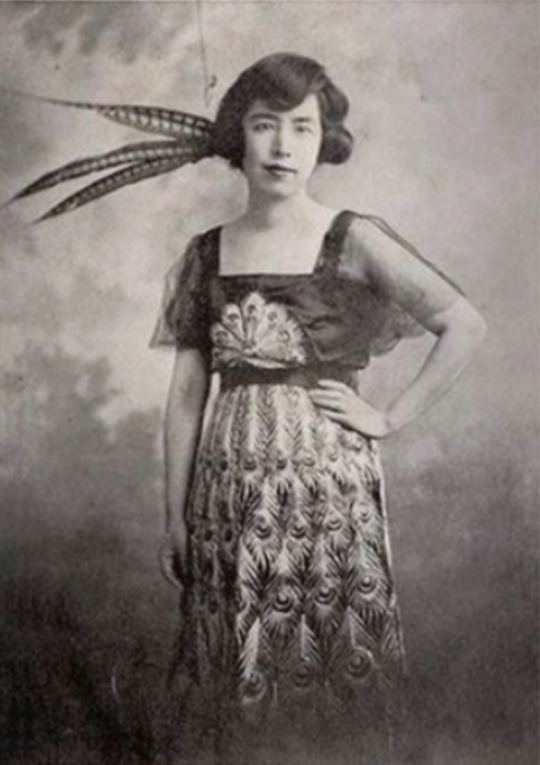
Lü Bicheng(呂碧城)also known as Alice Pichen Lee(1883–1943) was a Chinese writer, activist, newspaper editor, poet and school founder. She has been mentioned as one of the top four women in literature from the early Republic of China.
When she was four, her father retired to Lu'an, Anhui. She lived a life of comfort until the age of 12, when her father died in 1895. Because Lü Fengqi had no male heir, relatives of the Lü lineage contested for his inheritance, and Yan Shiyu and her four daughters were forced to move to Lai'an County to live with her natal family. When she was nine, Lü Bicheng was betrothed to a Wang family, but as her own family fortune declined, the Wang family broke off the marriage contract, giving the young Bicheng the stigma of a "rejected woman". The resulting emotional scar is often considered a major factor in her later decision to never marry.[8] Her widowed mother and the Lü girls were not well treated at the Yan family in rural Anhui. When Lü was 15 or 16, Yan Shiyu sent her to live with her maternal uncle Yan Langxuan (嚴朗軒), who was the salt administrator in Tanggu, the port city outside the northern metropolis of Tianjin. Her sister Huiru also joined her later.
During her stay in Tanggu, Qing China went through the tumultuous period of the failed Hundred Days' Reform of 1898, which brought about increasing awareness of women's education, and the Boxer Rebellion of 1900. In 1904, Mrs. Fang, the wife of her uncle's secretary, invited Lü Bicheng to visit a girls' school in Tianjin, but her uncle prevented her from going and severely reprimanded her. The next day, she ran away from her uncle's home, and took the train to Tianjin with no money or luggage. She wrote a letter to Mrs. Fang, who was staying at the dormitory of the Ta Kung Pao newspaper. Ying Lianzhi, the Catholic Manchu nobleman who founded the newspaper, read the letter and was so impressed by it that he made her an assistant editor. Lü Bicheng wrote a "progressive" ci that she had previously written, set to "A River Full of Red" ("Manjianghong") usually used to express heroic emotions. Ying transcribed the whole song in her diary and published it in L'impartial two days later. At the time, it was sensational for a woman to write for an influential national newspaper such as Ta Kung Pao. She was 21 years old. She used Ta Kung Pao to promote feminism and became a well-known figure.
Lü's ci poetry was published in the newspaper and it was very well received. She was the chief editor of the newspaper from 1904 to 1908. In 1904 she decided to improve education for girls. She had published her thoughts on women's rights and the general editor of the newspaper introduced her to Yan Fu who was an advocate for Western ideas. The Beiyang Women's Normal School was established that same year. At 23 Lü took on the job of principal of the school she had founded two years before. At first this school found it difficult to find girls who qualified for secondary education and students were brought in from Shanghai to make up the numbers.
Lü knew the revolutionary Qiu Jin and they had similar objectives but Lü did not join her in Japan when she was invited as she was unsure whether women should meddle in politics. She was then chosen to be secretary to Yuan Shikai, one of the most powerful people in China. When he set out to declare himself emperor of China she left, like many of his followers, and abandoned him.
--

Qiu Jin (秋瑾)8 November 1875 – 15 July 1907,was a Chinese revolutionary, feminist, and writer.Her sobriquet name is Jianhu Nüxia (Chinese: 鑑湖女俠 lit. 'Woman Knight of Mirror Lake').
Qiu was born into a wealthy family. Her grandfather worked in the Xiamen city government and was responsible for the city's defense. Zhejiang province was famous for female education, and Qiu Jin had support from her family when she was young to pursue her educational interests. Her father, Qiu Shounan, was a government official and her mother came from a distinguished literati-official family. Qiu Jin's wealthy and educated background, along with her early exposure to political ideologies were key factors in her transformation to becoming a female pioneer for the woman's liberation movement and the republican revolution in China.
In the early 1900s, Japan had started to experience western influences earlier than China. As to not fall behind, the Qing government sent many elites to learn from the Japanese. Qiu Jin was one of these elites that got the chance to study overseas. After studying in a women's school in Japan, Qiu returned to China to participate in a variety of revolutionary activities; and through her involvement with these activities, it became clear how Qiu wanted others to perceive her. Qiu called herself 'Female Knight-Errant of Jian Lake' — the role of the knight-errant, established in the Han dynasty, was a prototypically male figure known for swordsmanship, bravery, faithfulness, and self-sacrifice — and 'Vying for Heroism'
Qiu Jin had her feet bound and began writing poetry at an early age. With the support from her family, Qiu Jin also learned how to ride a horse, use a sword, and drink wine—activities that usually only men were permitted to learn at the time.In 1896 Qiu Jin got married. At the time she was only 21, which was considered late for a woman of that time. Qiu Jin's father arranged her marriage to Wang Tingchun, the youngest son of a wealthy merchant in Hunan province. Qiu Jin did not get along well with her husband, as her husband only cared about enjoying himself.While in an unhappy marriage, Qiu came into contact with new ideas. The failure of her marriage affected her decisions later on, including choosing to study in Japan.
While still in Tokyo, Qiu single-handedly edited a journal, Vernacular Journal (Baihua Bao). A number of issues were published using vernacular Chinese as a medium of revolutionary propaganda. In one issue, Qiu wrote A Respectful Proclamation to China's 200 Million Women Comrades, a manifesto within which she lamented the problems caused by bound feet and oppressive marriages. Having suffered from both ordeals herself, Qiu explained her experience in the manifesto and received an overwhelmingly sympathetic response from her readers. Also outlined in the manifesto was Qiu's belief that a better future for women lay under a Western-type government instead of the Qing government that was in power at the time. She joined forces with her cousin Xu Xilin and together they worked to unite many secret revolutionary societies to work together for the overthrow of the Qing dynasty.
Between 1905 and 1907, Qiu Jin was also writing a novel called Stones of the Jingwei Bird in traditional ballad form, a type of literature often composed by women for women audiences. The novel describes the relationship between five wealthy women who decide to flee their families and the arranged marriages awaiting them in order to study and join revolutionary activities in Tokyo. Titles for the later uncompleted chapters suggest that the women will go on to talk about “education, manufacturing, military activities, speechmaking, and direct political action, eventually overthrowing the Qing dynasty and establishing a republic” — all of which were subject matters that Qiu either participated in or advocated for.
Life after returning to China
Qiu Jin was known as an eloquent orator who spoke out for women's rights, such as the freedom to marry, freedom of education, and abolishment of the practice of foot binding. In 1906 she founded China Women's News (Zhongguo nü bao), a radical women's journal with another female poet, Xu Zihua in Shanghai. They published only two issues before it was closed by the authorities. In 1907, she became head of the Datong school in Shaoxing, ostensibly a school for sport teachers, but really intended for the military training of revolutionaries[citation needed]. While teaching in Datong school, she kept secret connection with local underground organization—The Restoration Society. This organization aimed to overthrow the Manchu government and restore Chinese rule.
Death
In 1907, Xu Xilin, Qiu’s friend and the Datong school’s co-founder was executed for attempting to assassinate his Manchu superior. In the same year, the authorities arrested Qiu at the school for girls where she was the principal. She was tortured but refused to admit her involvement in the plot. Instead the authorities used her own writings as incrimination against her and, a few days later, she was publicly beheaded in her home village, Shanyin, at the age of 31. Her last written words, her death poem, uses the literal meaning of her name, Autumn Gem, to lament of the failed revolution that she would never see take place:
秋風秋雨愁煞人
(Autumn wind, autumn rain — they make one die of sorrow)
After Qiu Jin was killed, no one dared to collect her body. Lu Bicheng endured her grief and took great risks to bury her friend. The guarding Qing army learned that the woman who came to collect the corpse was Lu Bicheng, who was famous in China, and they had no choice but to do anything.
Qiu Jin's death caused Lu Bicheng to lose a rare confidant in life. She wrote many poems in memory of Qiu Jin, recalling this like-minded friend.
Later, Lü Bicheng wrote "The Biography of the Revolutionary Heroine Qiu Jin" in English, which was published in newspapers in New York, Chicago and other places in the United States. It caused a great response and not only made many people in the world know about Qiu Jin's legendary story, but also published it in newspapers in New York and Chicago. It also makes people understand the darkness and corrupt social status quo of the Qing Dynasty. Lu Bicheng used a pen of her own to record her friendship with Qiu Jin, and also fulfilled her promise to Qiu Jin to respond with the "battle of words"
————————
📸Video & 🧚🏻 Model:@荷里寒 & @阿时Ashi_
🔗Weibo:https://weibo.com/3618951560/NEZZnpQRq
————————
#chinese hanfu#china history#woman power#woman in history#hanfu#hanfu accessories#hanfu_challenge#chinese traditional clothing#china#chinese#han dynasty#tang dynasty#late qing dynasty#feminism#revolution#漢服#汉服#中華風#girl power#hanfu girl
358 notes
·
View notes
Text




April 17th, 2024 ; Shanghai
#george russell#f1#f1edit#*m#*mine#24#chn24#chinese gp 2024#china#(in a way thats concerning to feminism etc.................)#(PUT THIS MAN IN A ROMCOM IMMEDIATELY.)
147 notes
·
View notes
Text



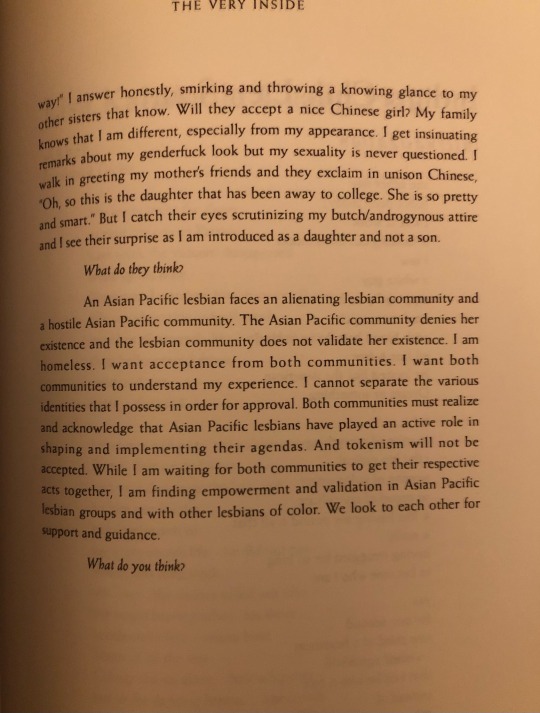
Source: The Very Inside; An Anthology of Writing by Asian and Pacific Islander Lesbians and Bisexual Women - Edited by Sharon Lim-Hing
#tw racism#tw homophobia#own voices#Chinese lesbian history#Chinese lesbian stories#Chinese lesbian voices#intersectional feminism#lgbt history#lesbian history#text#image#photo#lgbt#lesbian#personal#d slur#Asian pacific lesbian history
406 notes
·
View notes
Photo
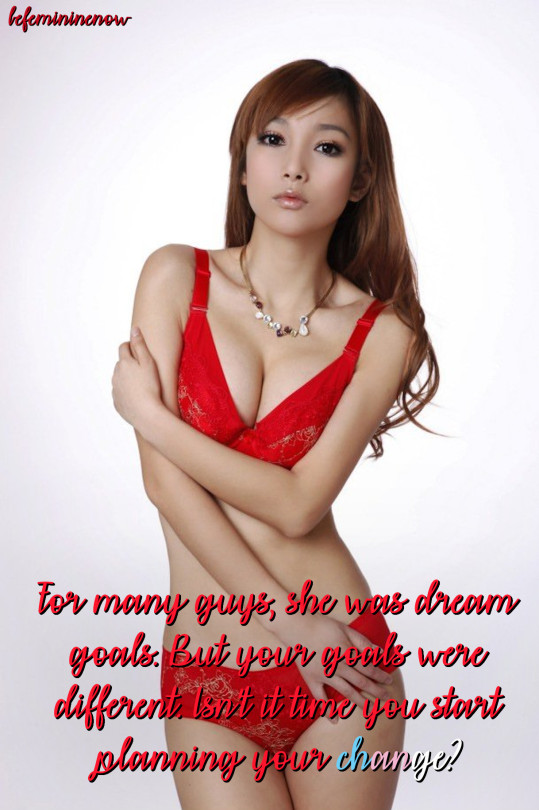
You admit that she was one of your earlier model crushes as a teen. She was also popular with your peers as well. But while your friends and peers preferred to see her as a cis girl, you saw her for who she was: a trans girl model who would inspire other trans girls to break their shell and come out. If only you knew she would be one of many reasons that you found your trans identity. The real question is: Would you transition far enough, just like she did?
-History time: When she made her debut as a model around 2009 or 2010, she became popular overnight and gained a following among netizens and teenagers in her native China. But in December 2010-January 2011, she came out as a post-op trans girl after somebody threatened to out her. People were shocked and were in unbelief to learn she was “amab” (assigned male at birth). Some say it was a publicity stunt as her popularity grew bigger since then. It didn’t take too long for the media to brand her as “China’s first trans model”, which gained polarizing results both in China and internationally.
Her name is Jessica Liu Shi Han, a Chinese transgender model that made an impact on LGBT+ people in her country and challenged the negative stereotypes society had placed on trans people at the time. She became respected as one of the first openly transgender models in Asia. But it was also the threat of being outed that made her come out as trans to an unaccepting public. All of this happened not too long ago and it shows how dangerous outing a trans person can be. Not just because it can damage somebody’s future, but it can also endanger their lives.
I remember reading about her in an online article I found when this first happened. Although some people my age range were aware or heard of trans people existing as part of the LGBT+ community, this was perhaps one of the fewest times I found out about passing trans girls. Of course, being a teenage guy, I found her attractive. But what I couldn’t believe was that she passed well enough that I couldn’t “tell” she was trans. In a sense, I felt a little hope that one day, I could transform into a girl like her. Nowadays, it’s become somewhat easier to get the needed help to transition into their ideal female (or male) self, without being too dysphoric on how they look. But it’s also important to watch out from those who wish to drag you down. As difficult as coming out is, it’s best to live who you internally are on the outside instead of suffering in the wrong body, just like Jessica.
172 notes
·
View notes
Text
Wen Qing : GIIIIRL YOU SO WELL DO YOU LIKE GIRLS?
Jiang Yanli: Yesss girl I'm a feminist
#jiangyanli#wenqing#mo dao su zhi#modao#chinese novel#femin#hc#shipping meme#shippgir#yanlixqing#mxtx fandom#mxtx mdzs#tumblr memes#femalecaracter
41 notes
·
View notes
Text
Doing my patriotic duty by stealing every copy of the Epoch Times newspaper from the diner and throwing them in the trash
#If anyone wants to know why...the epoch times is funded by a far right chinese religious cult#They are anti modern medicine. oppose evolution and are against feminism#They are extremely anti lgbt. I got an ad from them on youtube for an anti trans documentary#Oh and guess what...they are behind Shen Yun...that's right...the chinese dance show#They actually believe their leader levitates and passes through walls
11 notes
·
View notes
Text
"On college campuses throughout America, however, feminism is mainstream. Courses in Women's Studies abound, and millions of impressionable women take them. But notice they don't call these classes Feminist Studies (which would be the accurate title) because the term women suggests that all women think alike—or should think alike. (That's also why the phrase 'women's movement' is preferred over 'feminist movement.') Yet Women's Studies classes do not appeal to most women—they are nothing more than feminist indoctrination. The professors teach that gender is not a fact of nature, or biologically determined, but a social or environmental construct created by old-fashioned stereotyped training. They consider it a given that women have been subordinated and discriminated against by an unjust male patriarchy and need government action by legislatures and courts to give women their rights."
-Phyllis Schlafly and Suzanne Venker
From The Flipside of Feminism, 2011
#anti feminism#anti feminist#quote#phyllis schlafly#as someone who has taken one of these courses it really is this bad#it was like chinese water torture lol
28 notes
·
View notes
Text
.
#just watched a jack edwards video where he read yellowface and let me just give my 2 cents that no one asked for#so i'm asian. surprise. if y'all didn't know already#and i really feel like rf kuang's books are just not that good. in fact i would say they are very catered to white people#who are learning about colonialism or even asian people for the first time#it's like barbie being feminism 101 lol#most of the people i've seen say that babel or yellowface are the most groundbreaking books on earth are guess what. white people!#i've read babel. it was good and she obviously knows what she's talking about because there was so much information in it#but it was not the best book I've ever read. characters were bland. I've read the poppy war. good but not that great towards the end#my friend (singaporean but born in china) read yellowface and she absolutely fucking hates it#she gave me her copy to read but idk if i want to because none of rf kuang's books have stood out to me so far#that's not to say you can't love her books. and if you learn from them then that's great!#but don't treat her as objectively the best writer of our time when it is your own lack of knowledge that leads you to think that#also while we're on the topic#i fucking hate the bell jar#it's so WHITE#and the racism towards chinese people that 90% of y'all don't seem to get from reading the book is quite insane
4 notes
·
View notes
Text
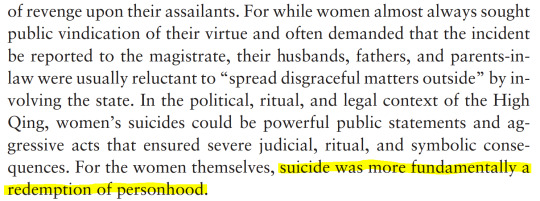
(Disgraceful Matters: The Politics of Chastity in 18th Century China, by Janet M. Theiss)
#.din#.pic#chinese history#feminism#so. female chastity in china is. a lot.#<- almost called it the cult of female chastity because of another book lol#im posting this screenshot out of context because im not gonna explain it well when i try.#but i thought this was such a beautiful paragraph.#suicide tw
7 notes
·
View notes
Text
New Life Begins ep 1-14 Review!
Before even a minute could pass I immediately loved the intro, and worldbuilding of nine regions. I straightaway made a list so I can keep track of the backdrop.
On to the actual episode, I did like some parts about it but mostly I thought this is too much character introduction for a drama opening. Too many things to keep track of. But it was funny and cute so I kept watching.
By ep 4 I started feeling like...
This drama felt like something written by me (I have ocd and am extremely detail-oriented)
Except that's not a praise. It felt like written by a delulu me out of control 😂
▪︎There are 9 provinces in this universe. You need to remember facts and points about all of them whenever the drama name drops them.
▪︎ There are girls from these different provinces and about 5 princes. You need to remember all their characteristics.
▪︎One Prince has 24 consorts, I kid you not, that he named based on 24 solar terms
A me 10 yrs ago would write something like this, I thought. (Now I have better control 🤭) It was highly amusing to watch in the sense you are reading your childhood diary rambles lol.
I have no idea how the drama makers kept track of who is who. Viewers can watch it with no problem if they don't think too hard, but for someone like me who had to hog on every detail, this was simply overload. It looks like a detail oriented person's catnip on surface, but is actually nightmare.
And once I stopped being pulled in all 8 directions by the various character flocks in this drama, I started noticing tiny loose-plot things about it. Once again, it felt like the scriptwriter/author was too focused on the number-game-nerding with as much as characters possible and making them interact in this wild network, so they didn't have time to work on finer details that would make a story sensible.
I thought I was gonna drop and was like "maybe let's watch today's eps too".
And boy, am I glad that I did.
Like a switch turned on, I suddenly started liking it from ep 6. And I only became more enamoured onwards! I have no idea what caused this, maybe I got used to the numerous background details of the story. Maybe the story *itself* chilled down a bit with its worldbuilding and started on with what it came to accomplish.
It is incredibly feminist! 😍 I realised this by ep 7, which delivered ABOVE and BEYOND and woah, I was suddenly in love.
I was supremely impressed with the portrayal of feminism in Danchuan. When I first saw the summary of the 9 regions, I liked Jichuan the best (obviously) and was hesitant about Danchuan because it sounded like just another stereotypical attempt at toxic feminism where it is not at all different from patriarchy except with genders reversed. Aka what a lot of people imagine feminism to be as shown in Romance of Tiger and Rose.
But Danchuan.... their logic, their values..all so sensible, considerate and extremely progressive. They do not seem like a group of women who terrorised a province and took men for slaves, rather they are a bunch of chill ladies minding their own business and if the men are humbled and mature enough to not be offended by that, they get to stay! There was no unnecessary belittlement to men. Rather they just cared very much (as they should) about equality, consent and self respect and would not settle for anything less.
(The following two lines by Madam Danchuan stuck with me. It really spoke for their core belief: that they would never force a woman to do anything against her will and choice.)


And from that moment it became THE feminist Chinese costume drama of the year! What is it about November? Last year it was Marvelous Women 💕.
*eyeing 2023's November. You better plan on your game starting now on, if you already haven't.
.
And it did not stop at the Danchuan arc!
I already was liking how New Life Begins touches on various ideologies (patriarchy, polygamy, monogamy, matriarchy) all at once. But I didn't expect a 100% satisfying outcome as that is simply too much deep topics for a single simple Web drama.
A complaint I always had about historical dramas' typical portrayal of women is that they always make it look like the ladies had no other use of their time than scheming how to bring the other ladies down so they can have the man's affection to themselves.
And I was like... surely in a society where polygamy was the norm there was at least one or two examples of functional and peaceful families where the ladies were smart, knew their worth and didn't care for a man who didn't care for them in return?
.
Last year's Marvelous Women was a gem that set the bar high on this front, where the women joined forces instead of torturing each other pointlessly. When such nuanced portrayals are a rarity even in the "serious historical" genre, I did not expect any at all in a simple fluffy costume drama like New Life Begins.
But it has already blown my mind with how nicely the ladies are written! How they value themselves first and foremost, how mature and intelligent they are with independent personalities that do not revolve around a man. They are capable of thinking for themselves and change the world and its expectations of them by their own will. Even if there were one or two characters that started too narrow-mindedly, they also eventually flipped a new page by working their own brains!
It is not even halfway aired, but New Life Begins has already set a new high bar, because it is showing how to write cool women in all family dynamic genres, all at once!
Be it an ideal monogamy, or a fantastical matriachy, or even a traditional polygamous society, smart and sensible women can exist in all these genres! If they don't then it is laziness of noone's but the writer.
Good job, New Life Begins writer!
.
What is feminism? For me, it means treating women as the intelligent creatures they are. Accepting that even in the most patriarchal and oppressive societies, women did have their own agency and are not unnecessarily victimised. Letting them own up their decisions and choices. That they did not fall over each other at men's feet all the time and were in need to be rescued and "educated" by a "modern-thinker". This is the narrative a lot of "feminist" dramas/movies push, which is actually disguised savior complex that feeds male supremacy more than they'd like to think.
It is sad just how much viewers are used to crappy female charcter designs in period dramas to the point if we see a woman behaving progressively we start thinking it's unrealistic.
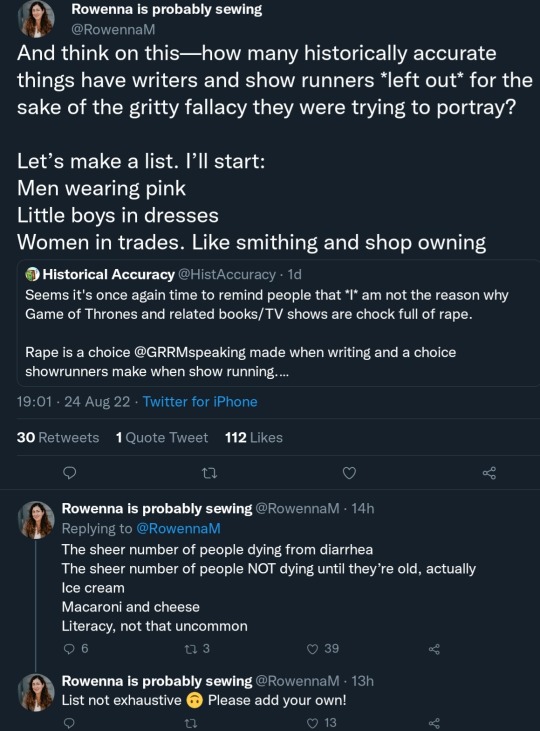
I always wanted a period drama where marriages of convenience happen, but instead of raising a mess of unnecessary misunderstanding and drama galore about it, the characters are level headed and respectful to each other while they use the situation to their benefit. I am not at all mad about the addition of Yuanying's role, because honestly in the overall picture of C costume drama land we have too little of sensible non-toxic AND powerful main wife characters.
This has so far been a VERY satisfying experience because this is everything I dreamed of, and you know how exhilarating it is when you get this very specific headcanon for a fanfiction and then you actually DO manage to find a one that is already written? Yeah, exactly like that.
It is so funny that at the beginning I thought "this feels like something I have written, except 10 years ago and more delulu" because my now revised opinion means I can praise myself! 😂 Now I really want to meet and chat with this writer over tea about our shared delulu and also quite good tastes! 🤭😌
Oh and I forgot to add, I really like that Li Wei hesitates a lot about whether to stay or leave, despite her loving Yin Zheng.
This indecisiveness of her wasn't frustrating to me. I completely get it. She respects other people's lifestyles, but she also has boundaries about what works for her. Also she's homesick, she loves her parents and brother and wants to be with them too!
On the other hand I find it unrealistic when a character falls in love they are suddenly willing to leave everything behind just so they can be with this new person. I never understand this (except in cases where that character's past life sucked and family members were toxic so they wanted to leave).
I'm someone who'd be like: If you want me, you'll have to come live at my place🤣
.
Last but not least, New Life Begins did wobble on its feet a lot as there are too many eggs in the bucket from the get go, but no matter how not 100% strong the writing may be, the drama's heart is in the right place and it will not dissapoint you. At first it might feel like it is quite touch-and-go on various worldviews and ideologies, but it is actually very thorough and raises a number of "Why not?" questions. Quite unexpectedly so for a fluffy costume rom-com. I have literally zero complaints about any character. Do give it a chance!
.
More posts by me
47 notes
·
View notes
Text

•Wang Zhenyi• was a scientist from the Qing dynasty. She broke the feudal customs of the time, which hindered women's rights, by working to educate herself in subjects such as astronomy, mathematics, geography, and medicine.
#steminist#physics#science#stem#mathematics#maths#stemblr#sub-at-omicsteminist#women in stem#women’s history#Chinese history#china#feminism#women#history
61 notes
·
View notes
Text

Originally planning to interview other model minorities who had gone off-script about their experiences before realising that she needed to share her own story, Model Minority Gone Rogue promises to be a funny, sad, exhilarating, and thought-provoking true story about what happens when you want to live life on your terms, even when those terms go against everything you’ve ever known.

Now trusting that the universe will provide her with what she needs, and honouring her authentic self, Qin Qin is still kicking some personal goals – she’s been named a 40 under 40: Most Influential Asian Australian in 2020, is a past winner of the Young Australia China Alumni of the Year Award, has been shortlisted for Penguin Australia’s 2021 Write It Fellowship, and was a recipient of a residency at Varuna The National Writers’ House in 2023.
#qin qin#Chinese Australian#Asian Australian#author#book#Asian writer#model minority#tiger mom#tiger mum#asian women#asian feminism#representation#East Asian#tiger mother
3 notes
·
View notes
Text
I just think every girl should deserve to just take down at least one toxic capitalistic establishment with a group of angry women as a treat. You know, for therapeutic reasons.
#ngl taking down a fucking website that stole our creative ownership and burning it to the ground was such an empowering move#like doesnt have to be big#just storm a chinese site that steals the creative license of individual artists#femine rage#femine#also with girl I also mean people who grew up under femine standards#TERFS fuck off#feminist#feminism#communism#anti capitalism
6 notes
·
View notes
Text
I’m currently doing a project on Chinese Science Fiction and if any of my followers has some recommendations (books, movies, tv shows), tell me, I’d love to know :)
Oh and if you have any thoughts on The Wandering Earth by Liu Cixin (book or movie) tell me about it, it’s my focus in my current essay and I am always happy for some input by others.
#ehh how to tag#chinese science fiction#liu cixin#sf#the liu cixin essay is actually on gender and feminism#just so you know beforehand
15 notes
·
View notes